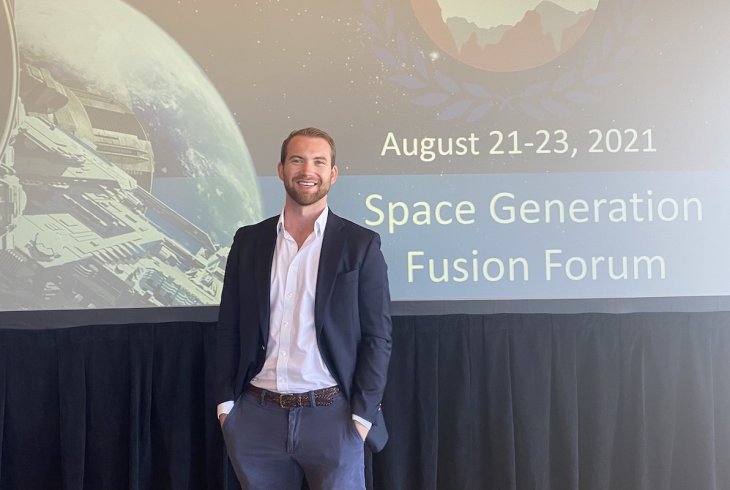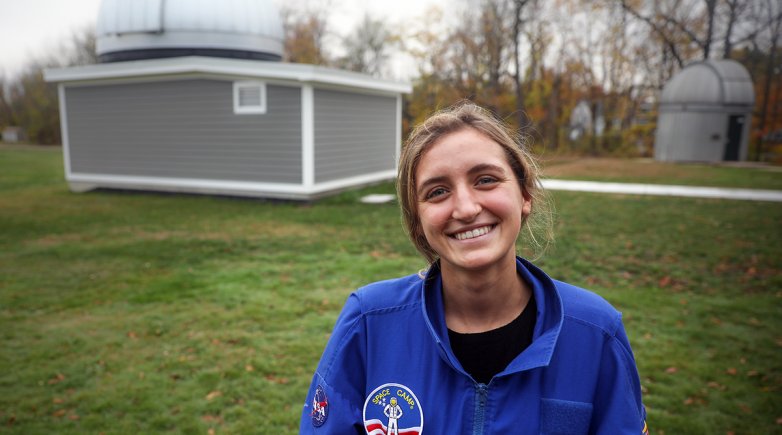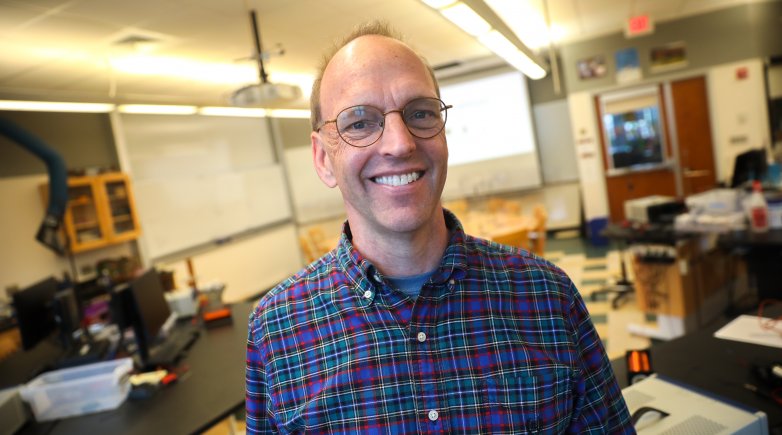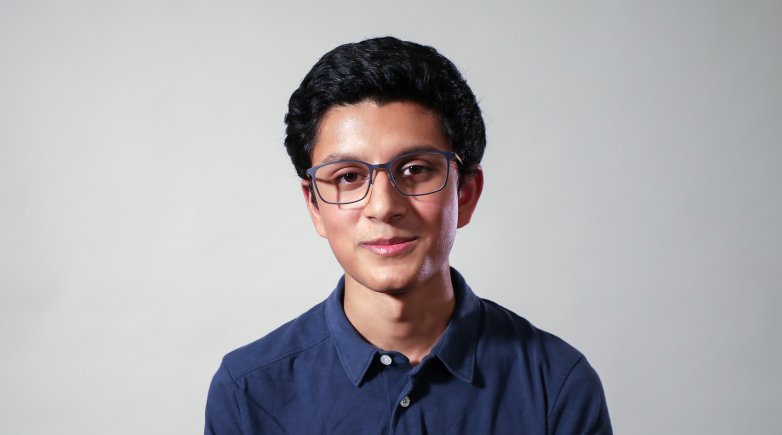Brendan Rosseau

“I’ve always liked big ideas, and astronomy is as big as it gets.”
Somewhere beyond Earth’s exosphere is the future of the global economy, says Brendan Rosseau ’15. As an engineer and consultant at Booz Allen Hamilton, Rosseau is developing space systems; as a researcher for Harvard Business School, he’s writing case studies for a new space-economy curriculum. The work is full-time-plus, but for Rosseau, two years out of college, it’s a dream realized. “I’ve always liked big ideas, and astronomy is as big as it gets,” he says.
Rosseau’s passion for space, reinforced during childhood trips to Chicago’s Adler Planetarium, inspired him to enroll as a new upper at Exeter, where Science Instructor and Grainger Observatory Director John Blackwell encouraged his development. At the Academy, Rosseau collaborated on research projects, served as observatory proctor and presented at a conference of the American Association for the Advancement of Science. For his outstanding contributions to the advancement of astronomy at Exeter, he received the 2015 John and Irene MacKenty Astronomy Prize. “Exeter fired up my drive to make a difference, deeply understand things and connect with people,” he says.
Of course, Rosseau didn’t spend all of his time with his eyes on the sky. He also played piano and was a linebacker for the football team, for which he was named a captain. At Williams College, he combined time on the gridiron with majors in astronomy and economics. Being multidimensional is key, he says. “In this burgeoning Space Age, there’s a real need for people with a broad range of skill sets: engineers, but also people in business, academia, government. To accomplish the potential of space, we’ll need talented folks from across the spectrum.”
We reached Rosseau — who is in no rush to visit outer space himself — on terra firma in Boston.
What’s happening in the space economy?
In the past few years, we’ve seen startups leverage new space technology and cheaper launch and satellite costs to do amazing things. I just researched a company that is using a constellation of 110 satellites to create a digital map of Earth. It’s a commercial company, but it’s helping to mitigate climate change through better data. There are a million examples like that.
What does space systems engineering entail?
I help civil, military and commercial customers develop next-gen space systems. As an example, GPS is one of the main systems. We know it as the blue dot on our phones, but it’s also how precision-guided munitions reach targets and soldiers know they’re in the right area. GPS is a great example of how space systems help everyone — it was created for a military purpose, but the Air Force provides it free to 5 billion people daily. Uber wouldn’t be possible without GPS satellites; ATM transactions rely on them. Our whole modern way of life involves GPS. It’s a great use case for the importance and potential of space.
Where are we headed next — Mars?
I’m passionate about using space to make a difference on Earth, whether it’s national security or climate change. I’m more focused on that than “Let’s go colonize Mars!” That’s years down the road, and it doesn’t get me as excited as making real change and helping solve problems.
— Sarah Zobel
Editor's note: This article first appeared in the fall 2021 issue of The Exeter Bulletin.



